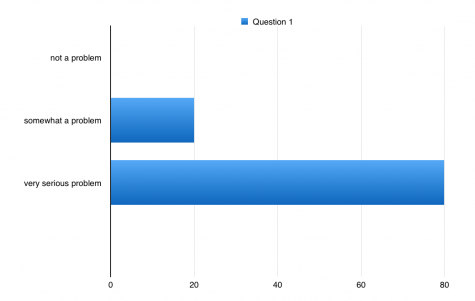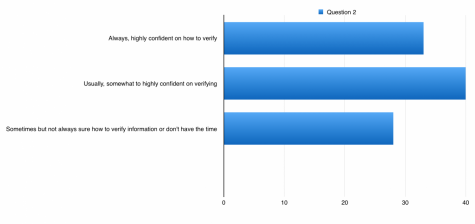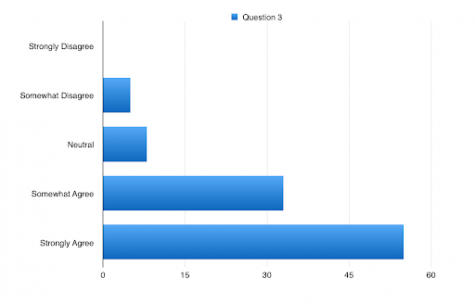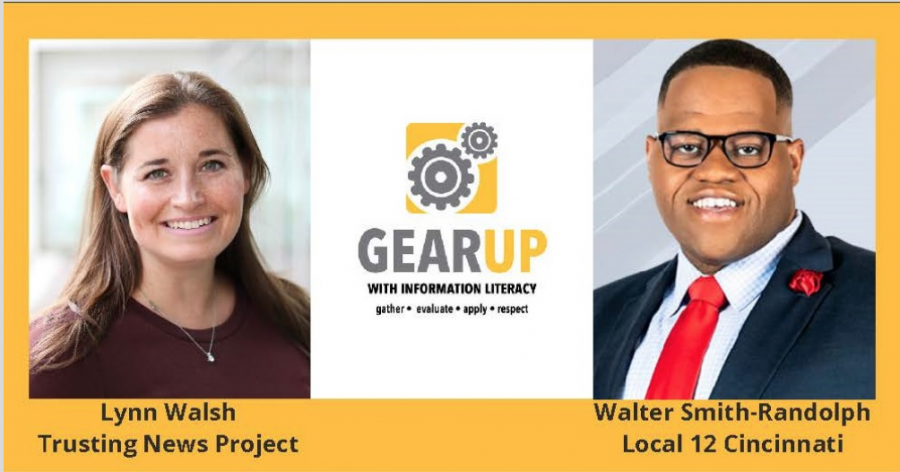Your donation will support the student journalists of Northern Kentucky University. Your contribution will allow us to purchase equipment and cover our annual website hosting costs.
NKU’s GEARUP hosts webinar on news consumption, media literacy
March 31, 2021
Northern Kentucky University hosted an Unblurring Lines Webinar with speakers, Lynn Walsh and Walter Smith-Randolph, on Tuesday, March 30. They talked about expanding information and furthering the education of the community about conversation on news as well as fact-checking and trust amid a growing increase of misinformation.
In its Information Literacy initiative, The GEARUP organization is using this webinar as a chance to share that information. NKU Professor Michele Day moderated the event by asking pre-written questions as well as viewer-submission ones.
Lynn Walsh is the assistant director of Trusting News, a research and training project that empowers journalists to actively demonstrate their credibility and earn trust. Walsh is also an Emmy award-winning journalist who has worked at national and local news along with being the former National President of the Society of Professional Journalists.
Walter Smith-Randolph is a reporter and special projects contributor at Cincinnati’s Local 12, along with serving as treasurer of the National Association of Black Journalists and is a current instructor at NKU. Prior to his success in Cincinnati, Smith-Randolph worked for stations in New York and Michigan, where his reporting helped uncover the Flint water crisis. He was also named the 2017 Kalamazoo Child Advocate of the Year for a series of investigative reports exposing child abuse.
The two panelists shared their view points and insights about the work of journalists and how to detect and report facts, verify information and how false information and news has impacted their career.
During the webinar, the topic of fake news was instantly brought up and how the media, journalists and community has suffered from fake news.
“Anything anybody doesn’t like, they call it fake news,” Smith-Randolph said.
He continued by explaining how people believe that all of the news has to be what they think it is or something that they like and instead of factual information being provided. Resulted in interviewing sources for a story more challenging because people are becoming more familiar with news products rather than the reporter themselves.
Walsh continued with her insight on the matter of fake news by sharing how it has affected her career by making it more challenging for people to trust journalists and rely on them to be sharing accurate information.
“The fact that this term is being used more, not just by everyday people or members of the public that you come across, but also from lawmakers and people in positions of power. What it is also doing is impacting the level of trust that people have in news,” Walsh said.
Issues throughout the country have been led by misinformation and unreliable sources being shared through social media accounts and having continuous shares that have led up to the accusations of journalists or specific outlets being fake news.
Discovering articles or information that appears to be questionable of whether or not it is accurate information or not, can be resolved by asking questions, following up with proof or documentation that has been collected, and fact-checking by verifying with sources.
Journalists collect story ideas and information with the help of the community and the people wanting their voice to be heard. As a reporting journalist, the job involves using the platform and sources to build a story and be the voice for those providing information.
“There are people watching you and we’re the watchdogs. We have to speak up for them, that’s my job,” Smith-Randolph said.
During the webinar, a poll of questions was provided for viewers to participate in.

“Another interesting thing, there’s another question that has been asked in a poll by Pew Research Center. They asked the same question of how serious of a problem do you think this is?” Walsh said. “The next question they say is who do you think is responsible for fixing the problem? Actually a large percentage of people do think that journalists should be part of the solution to fixing that problem.”
Advice from both Walsh and Smith-Randolph on how to be part of the influence and impact the information around you would be to call out misinformation, call out within your inner circle and have conversations to work towards educating.
Journalists have standards and rules they report by. They follow the AP Stylebook for rules and standards that people don’t necessarily understand.

Most complaints that go to the newsroom or news outlets are typically based on misinformation or a misunderstanding of the information being provided to the community, such as questions on clarity or further detail.
“That’s where journalists can do a better job labeling, making sure we’re being clear, that this is an opinion being shared and that is something else that can confuse people,” Walsh said.
A message for the community is that there are factual news based articles and there are also opinion based articles. Detecting the difference when these articles are published is where that becomes a more blurring subject for people within the community.
It led to the third poll question that was asked during the webinar.
“Everybody has their bias, I grew up as a Black man in Queens, New York,” Smith-Randolph said. “The question is can you set your bias aside to tell a fair story?”
Journalists do have formed opinions and think a certain way, but reliable journalists set their thoughts and opinions aside in order to do their job the right way.
“When it comes to doing your job, you just have to set that bias aside to be objective and to be able to give both sides and give some balance as well,” Smith-Randolph said.

What can you do as a reader or viewer when not knowing if information is reliable:
- Contact journalists
- Comment on the stations social media page asking if it is an opinion piece or a fact-based journalist piece
- Accountability, search the reporter asking the source the question
- Facebook isn’t reliable, whereas Twitter is easier to confirm the account
For more information on the content covered in the Unblurring Lines Webinar, please visit nku.eventsair.com for further details on the panelists that spoke, Lynn Walsh and Walter Smith-Randolph and for further updates about the recorded webinar to view.

